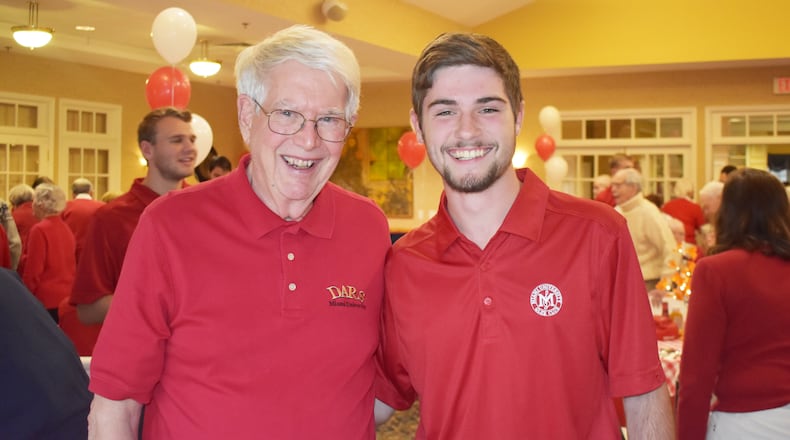That partnership touches on many activities and hobbies, including sports, performing arts, lectures and a popular technology program pairing Miami students with residents who want extra help. Another program pairs first generation college students at Miami with first generation college graduates at the Knolls.
“Some of those friendships last through the years,” Hampton said.
Many long-term care providers are exposing their residents to different types of experiences, opportunities, organizations and people, said Randi Hamill, workforce director at LeadingAge Ohio, a Columbus-based nonprofit that represents hundreds of long-term care organizations and hospices within the state, as well as related health care and housing services.
Long-held stereotypes have led some to believe that older adults all act in a certain way, she said. That isn’t the case, and they have many different desires, which include being active and social.
“A lot of long-term care providers are seeing that and meeting that need,” she said.
This exposure to a variety of experiences and people also helps to prevent isolation, which can be harmful to both the physical and mental health of older adults, she said.
Collaborations with schools also provide another benefit to senior communities, Hamill said. Students who visit become more familiar with careers in the long-term care industry, and such partnerships help to build a relationship.
“I don’t think it’s a secret that aging services has been on a roller coaster with the workforce,” she said.
But even for students who choose a different career path, those who are introduced to intergenerational experiences early are less likely to hold ageist attitudes later, she said.
When The Knolls of Oxford began its partnership with Miami almost 20 years ago, it was one of the first retirement communities in the country to launch something of that kind with a nearby university, Hampton said.
The goals include fostering interaction between the two institutions, boosting educational opportunities and strengthening intergenerational exposure, she said. Most of the residents already are affiliated with Miami in some way, as alumni, former faculty members or perhaps through a child who attended the university.
Having a community is important as adults grow older, Hampton said, and the ways that retirees can be involved in theirs is changing to meet a growing demand.
“I think the industry started to wake up and see the shift in the desire of their retirees,” Hampton said.
Residents also maintain ties to the community in other ways, she said, such as becoming members of the local Rotary or Kiwanis clubs or as food pantry volunteers.
Through the partnership with Miami, however, residents at The Knolls of Oxford enjoy being involved in the bustle of a college town and expanding their social circle to include those of other ages.
“There is just an energy you can’t deny that happens,” Hampton said.
About the Author




